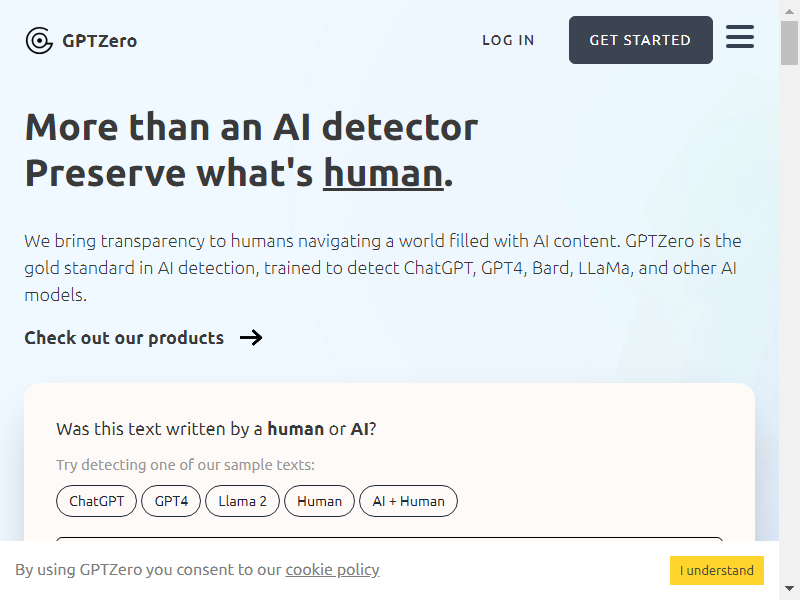
At GPTZero, we envision a world where human authenticity in writing is preserved amidst the rise of artificial intelligence. Our mission is to build responsible AI technologies that safeguard academic integrity, content originality, and trust across multiple sectors by precisely distinguishing human-generated text from AI-generated content.
We are pioneering advanced detection models and innovative authorship tracking tools that offer granular transparency into the writing process, empowering educators, publishers, legal professionals, and organizations to maintain clear attribution and accountability. By protecting the human voice in an AI-augmented future, we strive to foster meaningful and trustworthy communication in education, hiring, publishing, and beyond.
Our Review
We've been tracking GPTZero since its viral debut in early 2023, and honestly, we're impressed by how quickly this Princeton dorm room project became the gold standard for AI detection. What started as one undergraduate's response to ChatGPT plagiarism concerns has evolved into something much more sophisticated — and necessary.
The Accuracy That Actually Matters
Here's what caught our attention: GPTZero claims 99% accuracy with under 1% false positives. In our experience testing AI detectors, those numbers usually sound too good to be true. But the company's rapid adoption by over 3,500 colleges suggests they're delivering on that promise.
The sentence-level detection is particularly clever. Instead of just saying "this looks AI-generated," GPTZero color-codes specific passages, showing exactly which parts triggered their algorithms. That transparency matters when you're dealing with academic integrity issues or content verification.
Beyond the Binary
What we find most interesting is GPTZero's September 2024 pivot toward authorship tracking. Rather than just answering "human or AI?", their new software monitors writing patterns — copy/paste behavior, editing times, number of contributors. It's a more nuanced approach that acknowledges how people actually write in 2025.
This feels like the future of content verification. As AI becomes more sophisticated, simple detection won't be enough. Understanding the writing process itself? That's smart positioning.
Who This Really Serves
While GPTZero started in education, we're seeing smart expansion into hiring, publishing, and legal sectors. The use case for recruiters makes perfect sense — how do you evaluate a candidate's writing skills when half the applications might be ChatGPT-generated?
For content teams and publishers, the tool addresses a real pain point: maintaining authenticity while AI writing becomes mainstream. The $13.5 million in funding and reported profitability suggest investors see the market opportunity too.
Feature
AI text detection with 99% accuracy and under 1% false positive rate
Authorship tracking software for nuanced authorship insights
Sentence-level AI detection with color-coded highlights
AI text copyright check to detect AI-generated training data








